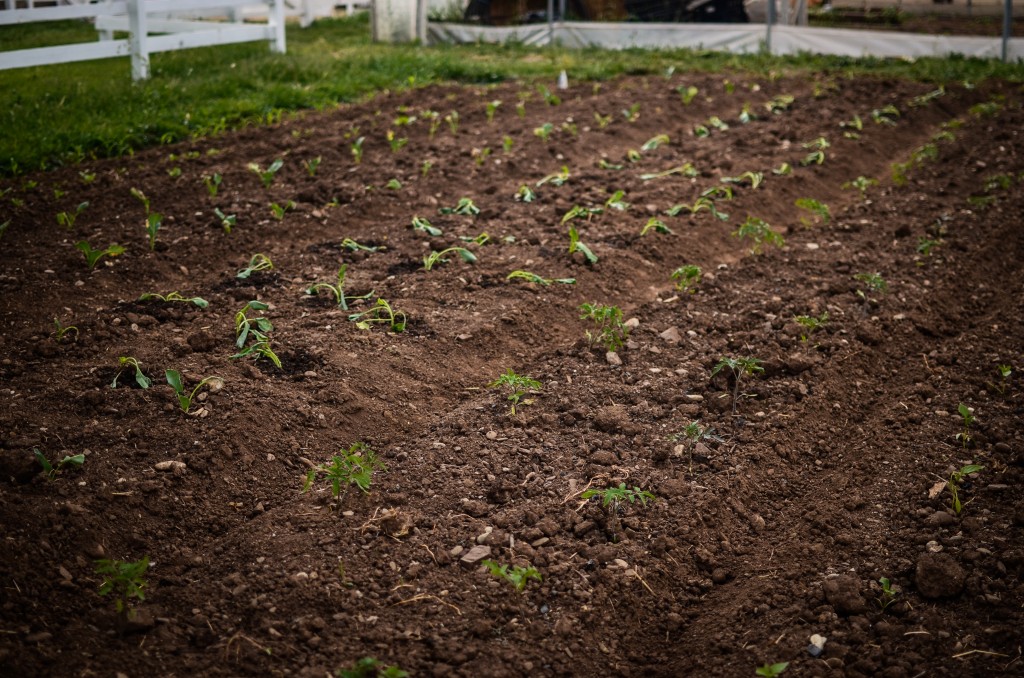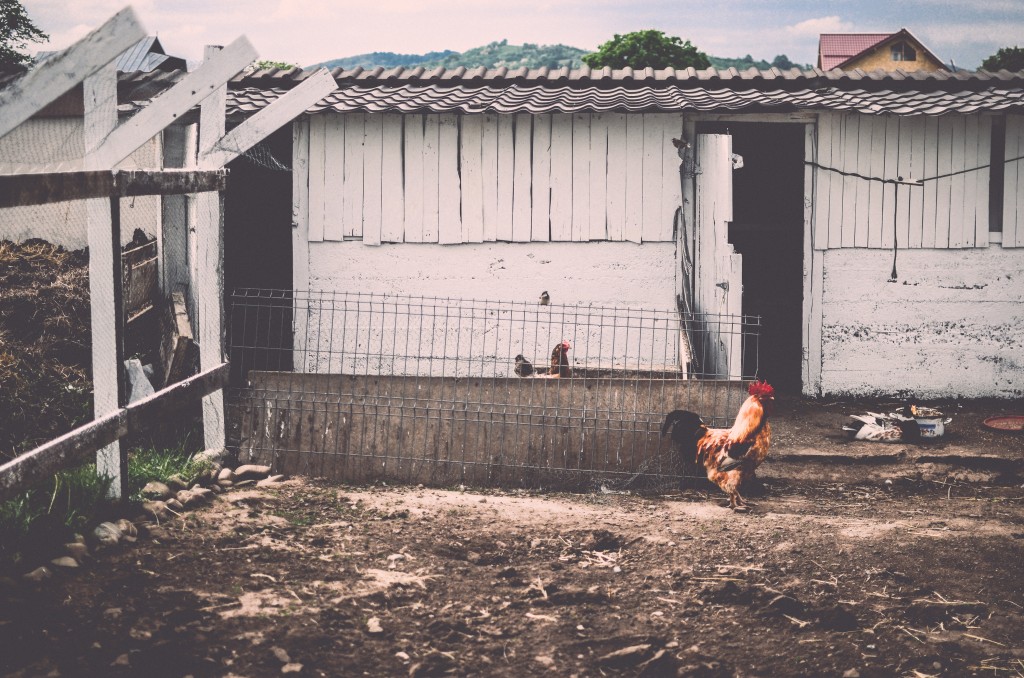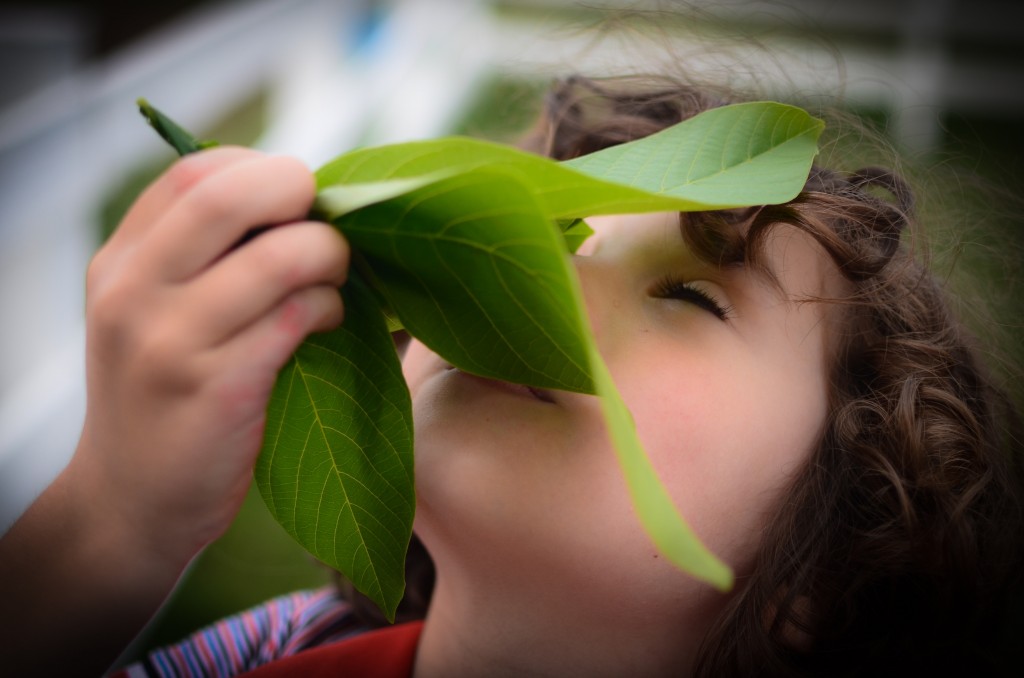Humility and Bobby McFerrin | Romania 2013
Mana Deschisa Women’s Shelter, Campina Romania, May 2013.
I tacked the last piece of colored yarn in place across the length of the small building. Wiping my dirty hands on my pants, I stepped back to survey my work and tried to imagine the purple and green morning glories that would someday grow into a curtain and hang here, against the cool white wall. The May wind blew and carried on it the sound of voices from the garden, where Larisa had encouraged me to spend time that afternoon, so I made my way across the wide expanse of yard. Walking over I felt uncharacteristically shy, like I was about to walk in on something private. My hesitance doubled as I got close enough to see women at work, knees bent and voices lifted, like a little choir with hands in the soil and faces in the sun. For a moment I watched them from a distance, surrounded by walls which hold their old lives out, obviously at peace in the rhythm of their labor. I understood this was a sanctuary that I was about to barge in on. I’ve never walked in their shoes, but I’ve been near enough to others recovering from a past to understand that these busy hands and sweet songs, so soft on the outside, were actually the guns and teeth of a front line of defense. Busy hands, busy minds and songs to drown out the siren cry of addictions, temptations and the cruelty of memories. I sensed that being invited by Larisa to spend time in the garden was an altogether different thing than being invited to participate by the women before me, and to add insult to the injury, I was translator-less and for all of my reading, I knew nothing about gardening.
But I thought that this might be what I came for. I wasn’t sure what “this” was yet, but the sense of it happened there as I made up my mind to risk the discomfort. Ducking under the branches of a tree that stood like a garden sentry, I pushed open the small white gate and made eye contact with the first girl I came to, gesturing to the little spike she was using to make holes in the fluffy soil.
“Can I help?” I offer, in what I hope is a friendly and obvious manner.
She laughs at me and shakes her head no.
This is not the response I was expecting and it took me by surprise in the uncomfortable and awkward way rejection will. I think it must have been obvious on my face as I just stood there, not even really sure where to look, however none of the girls looked up to clarify the initial response, or even with the slightest hint of curiosity or annoyance that despite having been dismissed…there I stood. Blankly, I shifted my weight. Did she misunderstand my request, or feel the need to assure me that I need not feel obligated? Maybe she was genuinely hoping that I’d abandon thoughts of interrupting with my clumsy efforts? What her motive was I couldn’t say and had no way to clarify, so I shoved my hands in my pockets awkwardly trying to decide what to do next. It seemed to smack of poor work ethic and a spoiled sort of phoniness to offer and then just walk away, as if I really hadn’t wanted to help, but without some clarification I didn’t see what other choice I had.
Finally, long after I’d made things insufferably weird but well before I’d managed to develop any kind of plan, I heard the approaching sound of English. Two women walked into view and with desperation, I leapt directly into their path, tripping on my hastily reiterated offer;
“Can I help? Larisa mentioned helping. I just want to learn. And help. Help.”
Yes. Help. I needed help.
She paused, perhaps to recover from my sneak attack of helpfulness and finally smiled tightly. ”Okay, yes.” she says, tone sticky with equal parts amusement and long-suffering. She speaks in rapid Romanian to the other girls, who stare at her for a long moment and then wordlessly shift their positions.
Their reaction isn’t lost on me, nor does it need translation. My earlier suspicion that the rejection was due to them hoping I’d just give up and go away was correct. Thinking that perhaps, with a little effort, I could be a real help in the end, I determined to be a quick study, plastered on what I hoped was a friendly smile and nodded enthusiastically. “Okay, what can I do?”. Veo, my new English speaking friend explains that I’m to put the starts in the holes. That’s all. Just drop the tiny little plants into the holes another girl has made and pull the dirt around them. She tells me that if they don’t plant all the starts that day….and there are many…they’ll die. She says this as if to imply that if I impede the process and they don’t all get planted, I will be single handedly responsible for rendering void not only all the hard work invested in growing these seedlings, but also for the impact it will have on the harvest. She then casually asks if I want gloves. Is this a test? No! I’m not scared of dirt. Unless gloves are culturally expected? I look around. No one else has gloves. I silently award myself an A for getting the glove test right.
So, I plant. The entire process that is happening around me involves staking lines for furrows, furrowing new rows, making holes, fertilizing the holes, watering the holes and finally dropping the starts in, work which all seems to happen without thought before my eyes. I go along swiftly enough and soon I’ve filled all the holes I have plants for and decide to try to help one of the girls as she sets the string line for the next row. I rush over as she pulls the stake on one end and places it a few feet away. I bend down on the opposite side, hand poised to pull the stake and move it parallel with hers. Her unusually low voice stops me. Perhaps its a silly comparison, but all I could think was ‘if moss had a sound, it would be her voice.’
“Waaait”, she says with mossy intensity, bracing her hands in front of her like double stop signs. I freeze, crouched there, hand hovering above the stake. She bounds with long deer-like leaps to my end of the furrow and measures out the distance, showing me the appropriate length. One stride apart they go. I nod. “Yes. Da.”. She looks skeptical, but after a pause, she nods reluctantly and lopes back to her end of the row.
We stake several rows and I try to compensate for the fact that her legs are substantially longer than mine by taking very wide steps on my end. Then we take hoes and dig trenches which line up with the string. We have done two, maybe three, when Veo comes over and speaks quickly in Romanian, gesturing with displeasure at our rows. While I’m not fluent in Romanian, I’m well versed in all indicators of “this-isn’t-right”. My low-toned friend countered weakly, I’m sure in my defense, but in the end, we had to go back and re-measure and then re-dig. I winced apologetically at her. “I’m sorry” I say. My partner in rows gives me a hint of a pained smile, shaking her head.
“Is okay” she says.
Trying to take courage from her generosity, I ask her name. She answers me slowly,
“I am call Vurica.”
“Vurica” she repeats a second time, to make sure I understand. I can see why she would have questions about my intelligence. I smile and thank her. I point to myself, offering my name, which she accepts with another nod.
We re-do our rows. Each time I go to place my stake, Vurica’s soft, rumbly voice calls “waaaitt” as she leaps over to my side to measure according to her own stride. Like a 5 year old, I am allowed to place the stake where she indicates. If she even thinks I might try to pull or stab a stake without her, I get the double stop signs and her now familiar instruction to…waaaiit. I am clearly not saving her any work. My face is burning and I would like to walk away now. Not because she is unkind, but because I am unaccustomed to the sting of not knowing.
Oh.
There it is.
In a stunning moment of clarity, I realize what lesson I came here for. Specifically here, to the garden at Mana Deschisa, in Campina, Romania. It’s not to learn to garden or to take notes on how to run a successful women’s shelter, nor is it (by a long shot) to be some kind of life-altering revelation to these women.
It’s Humility.
Humility is what I came here to learn. Suddenly I can see myself at home, very rarely if ever in situations where I must be taught. Never where I am uncomfortable or unfamiliar. In fact, I’m really very adept at avoiding any situation where I’m not at the leading edge. By and large, wherever I go I generally have a passable understanding, if not the outright advantage of expertise. But here, something as simple as measuring rows had eluded me. So struck by this thought was I that I began to seriously ask myself; when is the last time I truly had to be humble? Were meekness and putting myself last so others could be first a part of my life in any capacity at all? And alternately, how do I treat the people who come to me when I am in my element? With generosity, patience and kindness, like Vurica had extended, or with ill-concealed superiority? I swallowed hard. Sometimes the truth about yourself is painful. As I watched Vurica, gracefully and intelligently at her task, I realized that she was my saving grace, my hope for exorcising this awful lack of humility in myself, a little moss-voiced present from God to heal this ugly sore I had been carrying around like a treasure.
I did the only thing I could think to do. I listened. I let Vurica be the teacher. I stopped thinking of myself as her peer and instead considered her the expert. Instead of trying to just jump in and do, I asked for direction and tried to follow. I tried. I did. And I though I was doing well enough, understanding and keeping up or at least not being terribly in the way, but after only a short while, Vurica said in broken English “Time out for you, fifteen minutes”
In disbelief, I froze. I thought I’d at least made a little headway toward a friendship with Vurica, despite it being based on charades and a languages I can only describe as ronglish. Surely I hadn’t been doing so badly that it merited getting benched at this point in the game. But she saw my gaping mouth and repeated herself and I understood that I was doing so poorly she felt the need to give me a time out. Not knowing what else to do, I stood by the side of the garden. I waited there. She glanced at me several times, a confused wrinkle on her forehead and I wondered if it was because the protocol for a timeout was to leave the area altogether. Finally, unable to stomach standing there like a punished child, I started to walk to the garden gate.
“Waait!” came the familiar call. “Going where?”
I gestured like I was taking a drink.
The confused wrinkle was back, as she shook her head. “You stay” she said
I hesitated and she attempted a broken explanation “All girls, time out. 5 minutes!”
When understanding still didn’t seem to dawn on my face she poked her watch, with expectant, raised eyebrows and said slowly
“3. Cafe, Apa, The”
coffee, water, tea.
I see that her watch says 5 minutes to 3. It dawns on me. She hadn’t sentenced me to a time out. She was telling me that we all get a break in 15 minutes. To which I had responded by dropping my hoe and going to stand at the side of the garden like a weirdo. She sees my face clear with understanding and flush with embarrassment and our eyes lock. Suddenly we’re both giggling like middle schoolers with a secret.
“You have cafe with us?” she asks me when we finally catch our breath.
Still grinning my relief and gratitude at being included, I do my best to communicate the truth that is overwhelming to me just now.
Vurica, I wouldn’t miss it for anything in this world.
At 3, I follow them into their living room. We are all freckled and painted with dirt, cheeks flushed from the sun. All the girls, Vurica, Roxanne, Vera, Veo, chatter like sisters, even with me. As I sit there, in the protected space where they are free and at ease, despite whatever they have faced in their lives, to be themselves and where they have warmly welcomed me, despite my bumbling efforts, I am utterly drowned in a new understanding of what it’s like to be loved by Jesus and of what he means when he says he gives us beauty for ashes. That He turns our lowness into something precious. Vurica proudly talks about my progress and I can see that she is excited to have gotten to be the teacher, here. I have no way to really explain to them what I feel, but I try to tell her what a great teacher she is and how thankful I am to get to learn from all of them. I assume they think I just mean about the garden and that’s fine. But it’s much, much more than that. Gifts. Sometimes we are given gifts. And sometimes, if we’re not careful, we might overlook the best ones because they come wrapped in lessons about humility, meekness, selflessness or other things which are difficult to unwrap. Unwrap them anyway.
We finish our small rest and go back to the garden. I’ve finally caught on to the rotation of tasks and am trusted to do a portion on my own. Making rows, filling the watering can and watering 26 spots. Making the holes with the small spike and dropping in the little fertilizer pellets. Gently tucking the starts into the ground and starting again. After most of the day, I am finally getting occasional nods of approval mixed with Vurica’s heady “waaait” preceding the instruction, but at least I know now that I’m not slowing them down anymore. We trade words in English and Romanian.
And when Vurica begins, for the first time since I came to the garden, to sing, she sings a song in English.
She sang “don’t worry. be happy”
She throws me a cheeky smile as she add-libs the “ooooh’s”
And unable to contain my smile, I sang with her.
Soon, our whole little garden choir was singing “don’t worry. Be happy”, hands in the dirt, faces in the sun.





No comments yet.